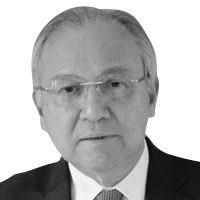The terrorism-drugs nexus

Just very recently as head of the Philippine delegation, I attended the “Global Coalition to Defeat ISIS” ministers’ meeting held at the US State Department. The summit was hosted by US State Secretary Mike Pompeo with US President Donald Trump as the main speaker. The US President thanked the coalition’s collective commitment in defeating ISIS around the world.
At the meeting – said to be the biggest gathering ever and attended by representatives from 74 countries and five international organizations that include the Interpol and NATO – I shared our experience in Marawi City and the government’s successful effort in combatting the forces of the ISIS (Islamic State of Iraq and Syria)-affiliated Maute and Abu Sayyaf terrorist groups working with our trusted allies, most especially the United States.
During my intervention, I told the delegates that the Philippines is doing its part in the global efforts to completely annihilate ISIS, and expressed the government’s continued commitment to address the prevailing threat of terrorism, as seen in the recent bombing of a Catholic cathedral in Jolo, Sulu that left more than 20 people dead and more than a hundred injured, with ISIS claiming responsibility for the attack.
On the sidelines of the meeting, I spoke to Lt. General Michael Nagata (who is the Director for Strategic Operational Planning of the National Counterterrorism Center under the office of the Director of National Intelligence) and explained that while it is a law and order problem, there is absolutely a connection between drugs and terrorism as evidenced by our experience during the siege of Marawi where an estimated P250 million worth of shabu (methamphetamine hydrochloride) was discovered during clearing operations conducted by government troops. The discovery of drugs confirmed President Duterte’s suspicions that terrorist groups generate funding through the illegal drugs business. President Duterte underscored this during the recent oath taking in Malacañang of newly appointed officials from various government agencies, saying that “…the rebellion in Marawi was fueled by drugs.”
The delegate from Cameroon, Minister Felix Mbayu, told me that the Boko Haram – a militant Islamic terrorist group working out of Nigeria and active in Chad, Niger and parts of Cameroon – use illegal drugs to finance their activities and operations. Worse, these terrorists use the drugs themselves, making them even more vicious, kidnapping thousands of women and schoolgirls as young as eight years old to serve as sex slaves in their “rape camps.” They become inhuman, making them technically ineligible to have human rights. Both of us agreed on that point.
During the lunch hosted by Secretary Pompeo, I had a discussion with the State Department’s Counterterrorism Bureau head and Ambassador-at-Large Nathan Sales – who was also one of the discussants in the US panel – and I was emphatic that we really have to work together about the terrorism-drugs nexus.
In an article titled “Drugs & Thugs: Funding Terrorism Through Narcotics Trafficking”written by Associate Political Scientist of the RAND Corporation, Professor Colin P. Clarke, he pointed out that “Narcotics trafficking remains one of the most common and most lucrative forms of criminality on which terrorists rely in order to finance their organizations and activities.”
Clarke outlines historical examples and contemporary cases of insurgent and terrorist groups relying on criminal activities, particularly drug trafficking, to fund their organizations, such as the Liberation Tigers of Tamil Eelam in Sri Lanka in the early ’80s, as well as the Hezbollah and Hamas in the Middle East that have ties with Mexican and Latin American drug cartels and various drug trafficking organizations. Terrorist groups serve as the security arm of drug cartels, and these two work well together because they are both hunted by law enforcement agencies and are the subject of intelligence network surveillance.
In many instances, terrorist groups take over the activities of the drug cartels, such as the FARC (Revolutionary Armed Forces of Colombia) that took over territory previously controlled by the Medellin and Cali cartels in the 1990s. Several sources also acknowledged that the drug money enabled FARC to spread its presence all over Colombia, with 65 percent of its funds coming from the illegal drugs trade.
A more contemporary example is the Taliban that had an estimated 500 drug laboratories in Afghanistan – a country that is now reputed to be the largest producer of opium. According to the UN Office on Drugs and Crime (UNODC), opium production in Afghanistan was at a record high of 9,000 metric tons in 2017 or an estimated $1.4 billion in farm gate value.
In November 2017, US forces launched “Operation Jagged Edge” targeting Taliban drug laboratories to curb opium production in Afghanistan whose annual export value is estimated to be as much as $4 billion – making Afghanistan the biggest supplier of illicit heroin all over the world (90 percent). While the bombings significantly reduced the number of drug labs, opium production is still high in Afghanistan estimated at 6,400 metric tons last year.
During the recent briefing of the UNODC last month, executive director Yuri Fedotov said, “The linkages between terrorism, illicit drugs and other forms of crime have been widely acknowledged, including by this council.” His remarks were echoed by several delegates who confirmed that trafficking in illicit drugs and drug precursors threaten the social fabric, public health and political stability of their respective countries.
As President Trump said in his remarks during the coalition meeting, “the struggle against terrorism is a shared fight,” and that “everyone must do their part and contribute their fair share.”
One thing is clear: No ifs or buts – we must destroy the unholy alliance between terrorist groups and drug cartels.
* * *
Email: [email protected]
- Latest
- Trending























